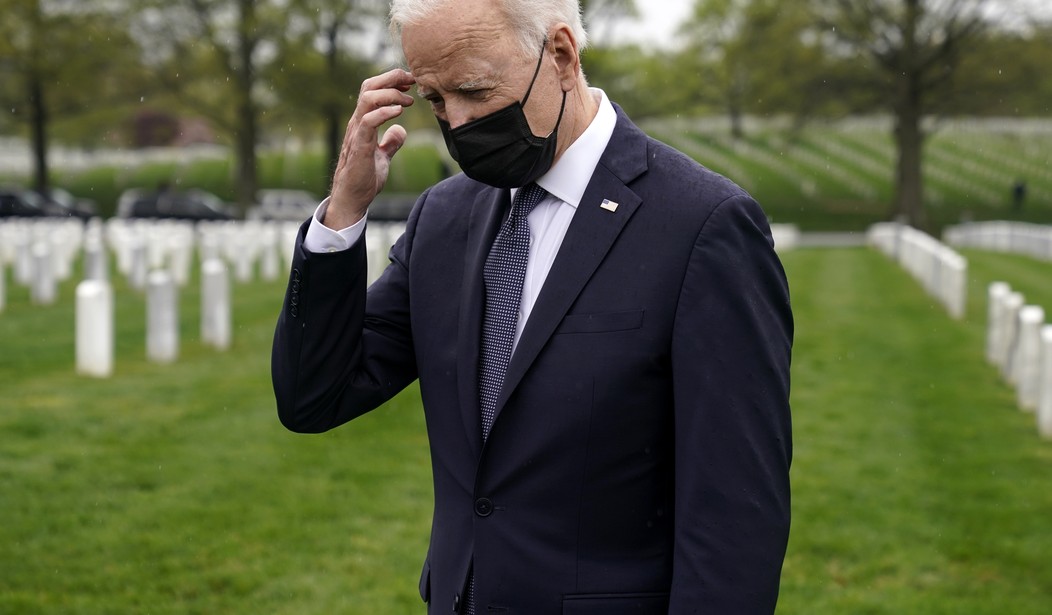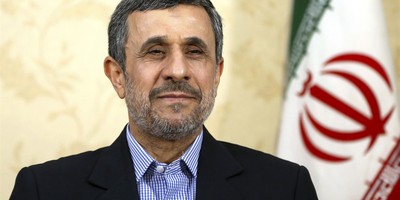Dulles, Virginia – We're consigning the fate of Afghanistan to its feeble government and bringing the troops home, but for many veterans who fought in Afghanistan or Iraq, these conflicts are not over. The horrors of war still echo in their hearts and their anxieties are only heightened as they watch the botched exit from Afghanistan.
Despite the Taliban's resurgence, President Biden clings to his claim that "we're ending America's longest war." Mr. Biden speaks of the U.S. exit in terms of finality – describing how the "final withdrawal," would "conclude" at the end of August, even as thousands of troops are surged in support of a retreat.
When it comes to Afghanistan, and Iraq, it would be more helpful for Mr. Biden to speak in terms of “transition” rather than “conclusion.” I suggest this because there needs to be a cathartic – not chaotic – conclusion to the war for our veterans and our nation. An effective end to war requires a transition from military operations to national recovery. It's the phase of warfare we don't do well as Americans – just ask any Vietnam veteran.
The stages of war begin with diplomacy and the hope of avoiding armed conflict. When diplomacy fails, military engagement ensues. This phase includes increased recruiting or conscription, training, deployment, and fighting. The next part is tending to physical injuries – everything from combat medics to evac operations to surgeries and rehab.
Currently, the phase of war in which most OEF/OIF veterans find themselves is long-term recovery. The primary facilitators are military support non-profits which are proving to be a vital component of our national security continuum, even if the defense community hasn’t fully realized or embraced the importance of our work.
Recommended
Under four different presidents, America has been at war for 20 years. Roughly 2.8 million troops have deployed in support of Operations Enduring Freedom (OEF) and Iraqi Freedom (OIF). Nearly 7,000 were killed while tens of thousands returned home wounded. And while the nation is ready to move on, for our troops, "dropping your pack," is easier said than done.
Ending their service is a decision with which they struggle. In the military, they're part of something profoundly important, they contributed to some of the most consequential military engagements in our history, they had enormous responsibilities, and survived life-or-death situations on numerous occasions.
It's not an easy life to leave. Although they return their gear, their experiences are always with them. Many are wonderful – the friends they made, the personal and professional victories they achieved, the lives they saved, and the human conditions they improved.
But too often, they've faced situations they wish they could leave behind – the kinds of things that result in emotional or moral injuries. Our troops have seen indescribable loss and the worst humanity has to offer. They've felt the carnage of war. The enemies they confronted routinely abused women, children, and the mentally impaired. Among other atrocities, ISIS and the Taliban beheaded people and burned them alive for purposes of intimidation, retribution, or evil theatrics. Whether it was the wickedness of the act itself, or its grotesque aftermath, many of our troops witnessed this barbarism and brought the memories home because there is no discharge paper that allows them to separate themselves from these realities.
While the politicians and the public move on, our veterans will struggle with emotional injury for many years to come. It's important to note that this is not an issue of mental health. Emotional, or moral, injury is an affliction of the heart and a scar on the soul.
It occurs when a warrior experiences an event that is, or seems to be, contrary to God’s law. Many combat veterans have found themselves in horrific situations that required them to act in a manner that, under different circumstances, might be unthinkable. Though their action was justified, the veteran nonetheless may carry feelings of sin, guilt, remorse, or self-doubt.
It’s not uncommon for these emotions to be suppressed for years, yielding to the more immediate needs of physical injury. But when moral injury surfaces, it stifles rehabilitation and promotes anxiety, depression, lack of trust, diminished self-worth, even suicidal ideation.
Veterans suffering moral injury benefit from consistent interaction with trusted friends and non-profit professionals who appreciate the differences between moral injury and mental health issues. They also need the public and elected leaders to understand that, for those who suffer from it, moral injury is the continuation of war by other means.
Tom Kilgannon is the President of Freedom Alliance, a nonprofit organization that provides support to America’s military families and advocates for a strong national defense. @TomKilgannon3 on Twitter and Tom Kilgannon on LinkedIn.
























Join the conversation as a VIP Member